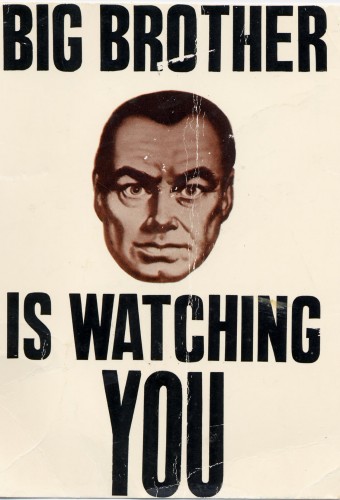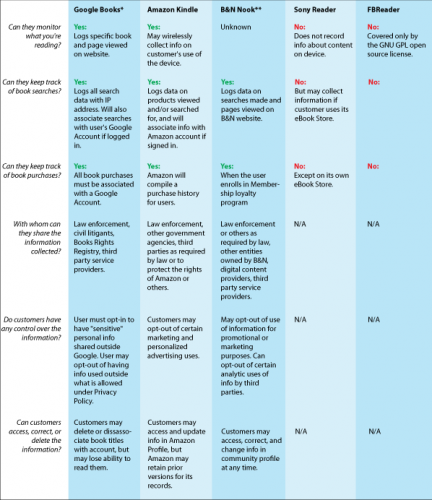The Electronic Frontier Foundation today released a chart outlining the potential privacy issues surrounding eBooks. It’s an interesting read, but I recommend taking it with a very large grain of salt.
Essentially, the EFF doesn’t think you should buy any eBooks that come from Google; B&N and Amazon are a bit dicier, but they strongly recommend opting out where possible of any demographic and reading tracking and marketing. All fair. But the EFF just complains about it; there’s nothing in the links to their articles explaining HOW to opt out of any targeted marketing.
 (image courtesy of Inconvenient Body)
(image courtesy of Inconvenient Body)
And that’s really my issue here. The EFF found the most inflammatory way to present this information (Google, Amazon, Barnes and Noble are going to track your every move!) and then pointed out the only “safe” way to read books where your privacy is not at risk is to use a non-wireless reader running open source software. They spent a great deal of time tracking down the relevant portions of the disclaimers and EULAs that indicate where these companies could and will use the data they gather, but they don’t offer any middle ground assistance. It’s just “accept that Big Brother will GET YOU” or “Embrace the DRM-Free, open source world.”
The truth is, there are ways to find a middle ground. Amazon offers you ways to opt out of their marketing offers. Leave the wireless off on your eBook reader when you aren’t actively downloading. If you don’t want to use your credit card, invest in gift cards and use those, or actively choose to only buy from DRM free sources (Fictionwise lets you buy for the Kindle, for example, and those books are unprotected Mobi). To a degree, existing on the internet and having a connected life is going to lead to sharing some portion of your personal life. So is owning a cell phone, having an email address, paying for anything with a credit card and just having a job and a social security number. It’s the nature of the beast. You are trading convenience for privacy; singling out eBooks for criticism makes it seem more like the EFF is “full of sound and fury, signaling nothing.”
I think the EFF does a lot of great things, and I think they bring a conscience and a voice to the digital age that it sorely needs. At the same time, I wish they would actually be productive in their suggestions, rather than just controversial.
Now if you’ll excuse me, I need to find my tin-foil hat and melt my credit cards.


Other than them knowing what page I’m reading at any particular time, how is my e-book purchase from Amazon or BN any different than a regular book purchase as far as reading habits and purchase tracking goes? I’m sure Kroger could access how many carrots or pop tarts I’ve bought this month as well but I honestly can’t figure out why I should care.